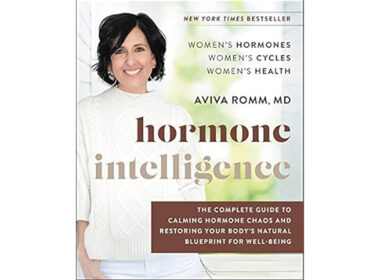The average American today doesn’t put much thought into preparing their body for conception other than adding a prenatal vitamin to their daily routine. But when I became certified in 2014 as a Nutritional Therapy Consultant and Feed Your Fertile Body!™ practitioner, I learned there’s a lot we can do to prepare for healthy conception before pregnancy is on the radar.
The first step is to ditch any artificial hormones from contraceptives you may be using, and start using Natural Family Planning (NFP) to better understand your cycle and space your children. Not only can the Pill cause birth defects and deplete several important vitamins and minerals in your body, charting your cycle with Natural Family Planning or Fertility Awareness-Based Methods (FABM) can help you identify and treat reproductive disorders like PCOS that could hurt your chances of conception later.
I started my journey to better nutrition about five years ago when I experienced a health crisis. A few years later when I had my son, I was so thankful for those years of nutritional preparation.
Whether you’re not in a relationship or postponing pregnancy with your spouse, now is the perfect time start learning about the health of your cycle with Fertility Awareness-Based Methods. Now is also the time to make diet and lifestyle changes that will prepare your body for conception and a healthy pregnancy. After all, a healthy you helps build a healthier baby when the time comes.
Here are six changes you can start to make today for a better tomorrow.
1. Make meals from scratch.
If you haven’t made friends with your kitchen and learned how to really cook from scratch, now is the time. By scratch, I mean getting away from processed foods. Home-cooked meals from fresh ingredients are more nutritious, and eventually, you’ll come to agree, more delicious.
Powdered, puffed, and boxed ingredients generally have been stripped of the nutrition contained in whole foods. They often have added sugars, chemical preservatives, inflammatory rancid fats from excessive processing, not to mention artificial colors and flavors.
Nutritionally speaking, we weren’t meant to eat chemicals. We were meant to eat fresh, whole foods. Chemicals and rancid ingredients devoid of nutrition can make you feel poorly and cause toxicity in the body, and an under-nourished body will have a harder time conceiving and experiencing full health during pregnancy.
2. Go organic & grass-fed.
Organic fruits and veggies are raised without chemical pesticides that can disrupt your fertility hormones and also negatively affect the healthy development of a baby. Also, some non-organic fruits and veggies are genetically engineered—meaning they contain DNA from another species spliced in a laboratory. There are studies and farmer testimonies indicating a negative impact of GE (or GMO) feed (which is sprayed with Glyphosate or Round-Up) in their animals’ health and fertility. GE foods are not natural, and we do not fully know the effects on human cell function and health from consuming genetically engineered DNA.
Additionally, it’s best to eat meats, eggs, and dairy from animals that have been eating a natural diet. This means switching to 100% grass-fed or pastured animals. When it comes to seafood, it’s also best to avoid “farmed” seafood which is fed an unnatural diet, just like animals in confined animal feeding operations. Foods and seafoods from sources fed a natural diet are higher in nutritional properties that you and baby will both benefit from.
3. Enjoy more animal fats.
Animal fats like butter and lard have gotten a bad wrap for the past few decades as causing obesity and high cholesterol. But fats from animals that have eaten a natural diet are very nourishing. They can handle high cooking temperatures without going rancid. They make pretty much anything taste delicious. They help you digest meat and absorb fat-soluble vitamins like A, D, E, K. Every cell in your body also needs cholesterol to function properly, and so especially does the brain. In fact, if you don’t eat enough cholesterol, your body will find ways to produce it.
Commonly misunderstood is that fat isn’t so much what makes people fat. Rather, the amount of sugar and processed carbs one eats as well as the consumption of chemicals in many foods today can spike insulin—the fat-storing hormone, slow your metabolism and create a cravings roller coaster. The body’s preferred source of energy is actually healthy fats like coconut oil, avocados, full-fat dairy, fish oil, nuts, and so on.
4. Build up your good bacteria.
Our good bacteria in our intestines helps us digest foods, convert vitamins into usable forms, regulate our weight, and even produce neurotransmitters that affect our mood.
Your future children will inherit their gut bacteria from your vaginal canal during delivery. It’s always a good idea to work on reducing any pathogenic overgrowth in your system and rebuilding the amounts and types of good bacteria. This can be done by taking probiotic pills, adding probiotic drinks to your diet like beet kvass, kombucha, or kefir. You can also try to consume cultured sauerkraut, pickles or other veggies. Many health stores carry these cultured veggies, probiotics, and drinks full of good bacteria.
5. Kick toxic chemicals out of your home.
You can’t control all of the chemicals in all of your environments, but you can start right now to reduce your exposure by changing the items you use to clean and fragrance your home.
There are many non-toxic cleaning and body care products available these days. Essential oils are a great alternative to synthetic fragrances that contain neurotoxins. The fewer toxins in your body, the better you’ll feel, and the more properly your systems can work.
Plus, chemical toxins can switch on bad genes as your future children develop in the womb. This is known as epigenetics. In men, these endocrine-disrupting chemicals can also damage sperm quality which will affect your shared fertility and possibly the health of your future babies.
6. Drink better beverages.
Most of us will admit we drink way too many caffeinated and sugary beverages. These are very taxing on our bodies. They can wear out our adrenals and pancreas, leading to blood sugar dysregulation and reduced ability to properly create our stress-regulating hormones. Processed sugar also sucks nutrients out of the body because it does not contain all of the co-factors a whole-food treat contains (like a piece of fruit or even raw honey) that help the body properly assimilate the sugar.
Artificially sweetened beverages are also very common in the standard American diet, but these have been linked to neurological disorders, obesity, and even cancer. Tap water is full of pharmaceutical and pesticide residues, chlorine, some heavy metals, and much more. It is best to invest in a high-quality filter or purchase mineral water for drinking and cooking. Ideally, avoid drinking water bottled in plastic or aluminum containers as they can contain estrogen-mimicking chemicals found in BPA plastic or the aluminum coating. Invest in a stainless steel or glass reusable bottles for your water consumption.
Alternatives to caffeinated and sugary beverages can include sparkling water with lemon juice, herbal teas, kombucha (which does have some sugar, but some less than others), full-fat raw milk (from a certified dairy), beet kvass, and the increasingly popular traditional food, bone broth. Proper hydration with clean, nourishing beverages will help stave off headaches, promote healthy blood flow, healthy skin, and more.
So if you are hoping to have children—or more children—one day, the time to start preparing is now. Consider adding one of these tips at a time to your lifestyle. Your actions today to improve your nutrition will have a huge effect on your health and the health of your future little ones.







